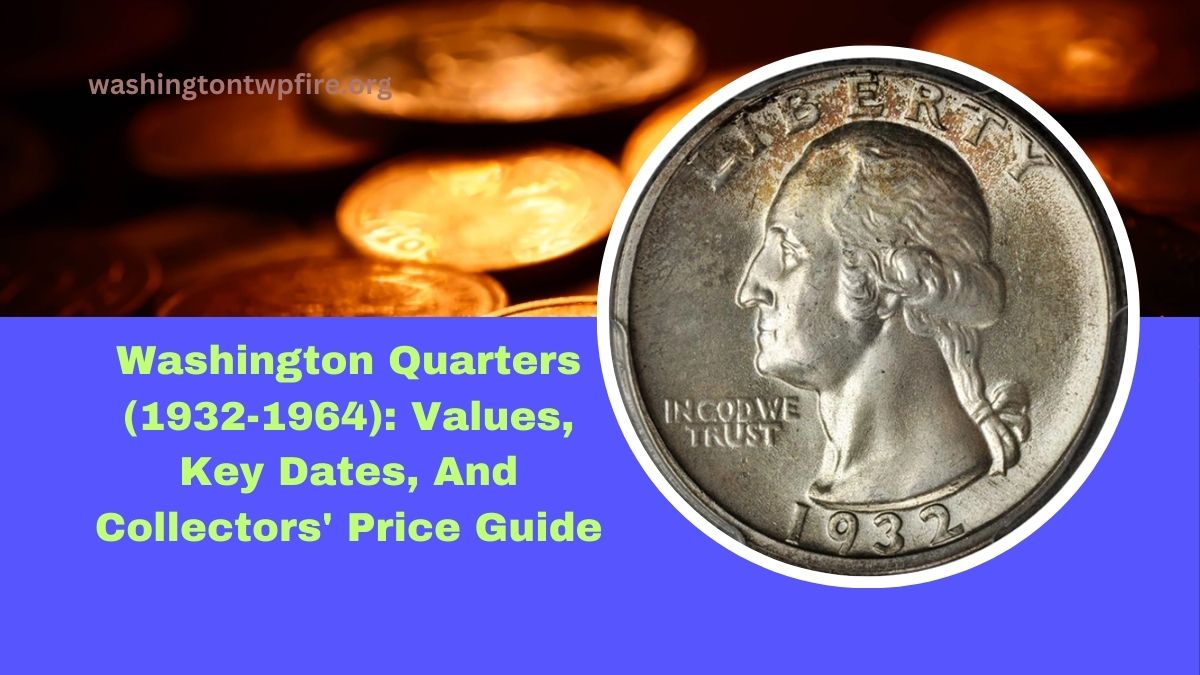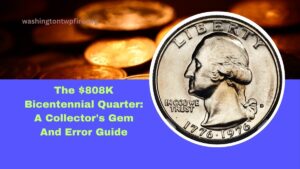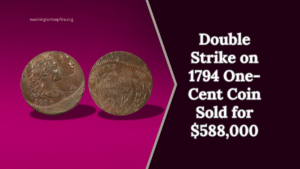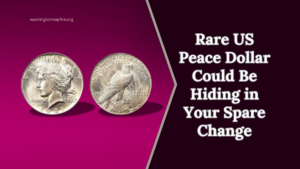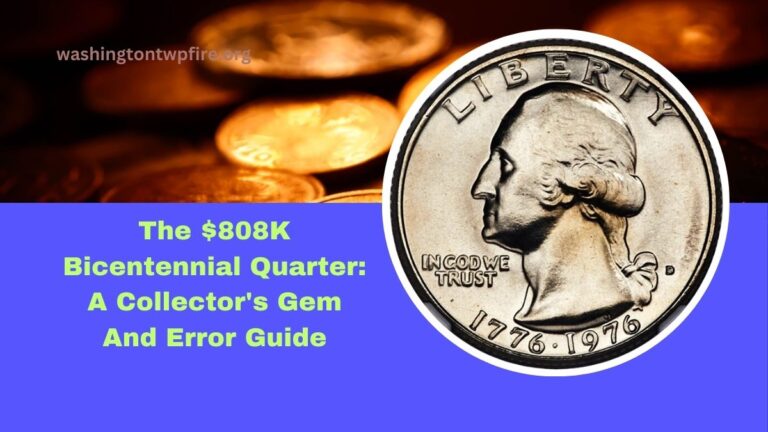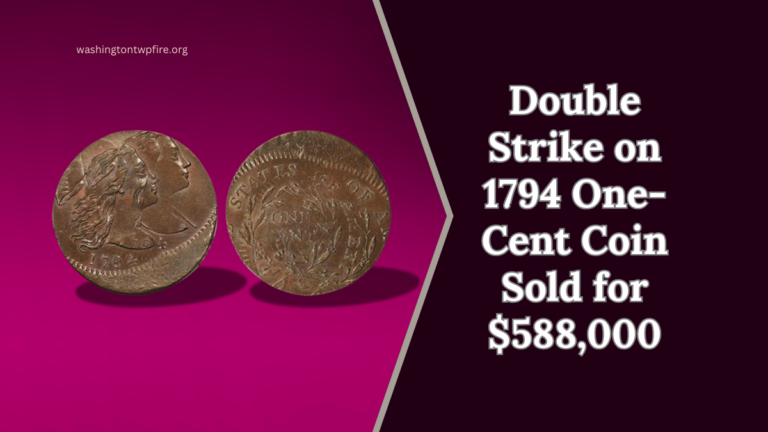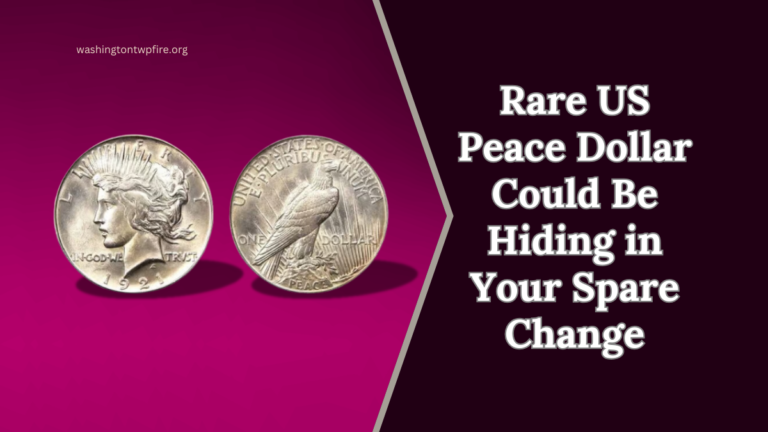The Washington Quarter, introduced in 1932, remains one of the most iconic coins in American numismatic history. Celebrating the bicentennial of George Washington’s birth, this coin replaced the Standing Liberty Quarter and quickly became a collector’s favorite.
Coins minted between 1932 and 1964 are particularly sought after due to their 90% silver content and historical significance.
History and Design of the Washington Quarter
The Washington Quarter was designed by sculptor John Flanagan and features a profile of George Washington on the obverse and a majestic bald eagle on the reverse. The series began as a commemorative coin but transitioned into regular production due to its popularity.
Between 1932 and 1964, Washington Quarters were struck in 90% silver and 10% copper, making them highly desirable among both investors and collectors. After 1964, the composition changed to a clad of copper and nickel.
Key Dates and Rarities
Several dates in the Washington Quarter series are considered rare and command high premiums. Below are some of the key dates collectors should watch for:
| Year | Mint Mark | Mintage | Approximate Value (MS65) |
|---|---|---|---|
| 1932 | No Mint Mark | 5,404,000 | $150 – $300 |
| 1932-D | D | 436,800 | $1,500 – $5,000 |
| 1932-S | S | 408,000 | $1,500 – $6,000 |
| 1934 | D | 3,527,200 | $200 – $800 |
| 1942-D | D Over Horizontal D | Unknown | $3,000 – $15,000 |
| 1950 | D | 21,198,200 | $30 – $60 |
The 1932-D and 1932-S quarters are the rarest in the series, as they had exceptionally low mintages. These coins are often the centerpiece of Washington Quarter collections.
Factors Influencing Value
Several factors determine the value of a Washington Quarter:
- Condition: Coins in mint state (MS) condition command the highest prices. Look for coins with no wear, crisp details, and original luster.
- Mint Mark: Coins struck at the Denver (D) and San Francisco (S) mints are generally rarer than those from Philadelphia (no mint mark).
- Errors and Varieties: Certain errors, like the 1942-D Over Horizontal D, are highly valuable.
- Silver Content: All quarters minted between 1932 and 1964 contain 0.18084 troy ounces of silver, adding intrinsic value based on current silver prices.
How to Identify Rare Washington Quarters
To identify rare and valuable Washington Quarters:
- Check Mint Marks: Located on the reverse below the eagle’s tail feathers.
- Inspect for Errors: Look for doubling, re-punched mint marks, or other anomalies using a magnifying glass.
- Evaluate Condition: Coins with sharp details and minimal wear are worth more.
- Verify Composition: Only quarters minted before 1965 are made of 90% silver.
Why Collect Washington Quarters?
The Washington Quarter series offers a mix of affordability and rarity, making it suitable for both novice and seasoned collectors. Their silver content makes them an excellent hedge against inflation, while their historical value connects collectors to a pivotal era in American history.
Conclusion
The Washington Quarters (1932-1964) represent a fascinating and valuable segment of U.S. coinage. From their elegant design to their silver content, these coins continue to captivate collectors worldwide.
Whether you’re hunting for key dates like the 1932-D or exploring varieties like the 1942-D Over Horizontal D, adding these quarters to your collection can be both rewarding and lucrative.
FAQs
Their low mintages (436,800 and 408,000, respectively) make them rare and highly sought after by collectors.
All Washington Quarters minted between 1932 and 1964 contain 90% silver. Post-1964 quarters are made of copper-nickel clad.
The 1942-D Over Horizontal D is one of the most sought-after errors, with values reaching up to $15,000 in mint condition.
Reputable coin dealers, online marketplaces, and auctions are great places to sell rare quarters.
While modern Washington Quarters are in circulation, finding pre-1965 silver quarters is rare but not impossible.

